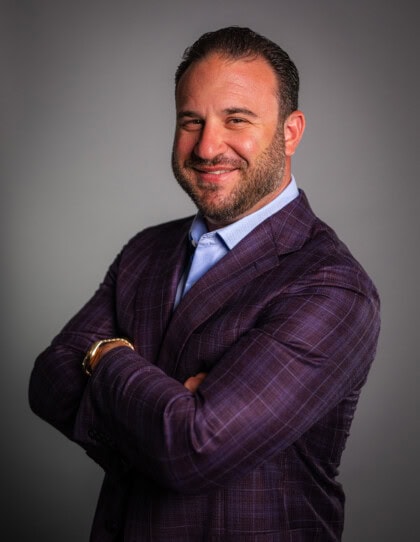Police encounters can be intimidating and stressful experiences, especially when individuals are unaware of their constitutional rights. Among these essential protections, the right to counsel stands as a fundamental safeguard for Florida residents during law enforcement interactions, serving as a critical line of defense against potential legal jeopardy.
Understanding when and how to properly invoke your right to an attorney can significantly alter the course of police questioning and subsequent legal proceedings. Keep reading to learn the proper procedures for requesting legal representation during police encounters in Florida and how this right shields you during investigations.

Understanding the Right to Counsel
Studies show that defendants who invoke their right to counsel early in the process typically face better case outcomes than those who attempt to navigate the system alone.
The right to counsel is a constitutional protection stemming from the Sixth Amendment to the United States Constitution. This amendment guarantees that "in all criminal prosecutions, the accused shall enjoy the right...to have the Assistance of Counsel for his defense." This foundational right has been expanded through numerous Supreme Court decisions that have shaped its application in modern law enforcement contexts.
One of the most significant expansions came through the Miranda ruling, which requires police to inform suspects of their rights, including the right to a criminal defense attorney, before custodial interrogation. These "Miranda rights" represent a practical application of constitutional protections in everyday law enforcement interactions.
In Florida, as in all states, this right ensures that individuals facing criminal charges can obtain legal representation to navigate the complex legal system. The right to counsel serves as a counterbalance to the state's substantial resources, helping to level the playing field between the government and the accused.
This protection is particularly important during police encounters, where the stress and pressure of the situation may cause individuals to make statements or decisions that are not in their best legal interest. An attorney can provide objective advice, explain legal options, and ensure that law enforcement respects all other constitutional rights during questioning and investigation processes.
When Does the Right to Counsel Apply?
The right to counsel in Florida applies differently depending on whether an individual is in a custodial or non-custodial situation. In custodial interrogations, where a person is under arrest or otherwise deprived of freedom of action in any significant way, the right to counsel must be honored once requested. This is when police must inform suspects of their Miranda rights, including the right to an attorney and the right to remain silent.
In non-custodial situations, such as brief investigatory stops or voluntary conversations with police, individuals still have the right to request an attorney, but officers may not be required to stop questioning immediately. However, a person is always free to decline to answer questions and request legal representation before proceeding with any further interaction with law enforcement.
Limitations of the Right to Counsel
While the right to counsel is robust, it does have certain limitations in Florida. For instance, the right to have an attorney present typically applies only to interrogations and critical stages of criminal proceedings, not to administrative procedures like field sobriety tests or the collection of DNA samples pursuant to a valid warrant.
Additionally, if a person invokes their right to counsel but later initiates communication with police about the investigation, courts may consider this a waiver of the previously invoked right. Law enforcement may also continue questioning about unrelated crimes if the right to counsel was invoked specifically for a particular offense.
There are also emergency exceptions where police may question a suspect without counsel present if there is an immediate threat to public safety. For example, if police believe a suspect has planted a bomb set to detonate soon, they may question the suspect about the bomb's location without waiting for an attorney. However, statements obtained in such circumstances may still face scrutiny in court regarding their admissibility.
How to Invoke Your Right to Counsel
Understanding how to properly invoke your right to an attorney during interactions with Florida law enforcement is crucial for protecting your legal interests. The manner and timing of your request can significantly impact how law enforcement proceeds with questioning and evidence gathering.
Clear and Unambiguous Invocation
When invoking your right to counsel during a police encounter, clarity is paramount. Courts have consistently ruled that requests for an attorney must be unambiguous and direct. Simply saying, "I want a lawyer" or "I would like to speak with an attorney before answering any questions" leaves no room for interpretation.
For specific situations, you might use phrases like: "I am invoking my right to an attorney" (during a traffic stop) or "I will not answer any questions without my attorney present" (at a police station). These clear statements establish your intention to exercise your constitutional rights.
Ambiguous statements like "Maybe I should talk to a lawyer" or "Do you think I need an attorney?" may not be considered sufficient invocations of your right to counsel. Law enforcement officers are not required to clarify ambiguous requests and may continue questioning if your request is not clear.
Using hesitant or conditional language can undermine your protection under the law and potentially expose you to further questioning that might otherwise have been prohibited. Remember that you are asserting a constitutional right, not making a request that requires justification or explanation.
Timing of Invocation
The timing of your request for counsel can significantly affect its impact on police questioning. Ideally, individuals should invoke their right to an attorney as soon as they feel uncomfortable or uncertain about answering police questions, and certainly before making any potentially incriminating statements.
You can invoke your right to counsel at any point during a police interaction—before questioning begins, during questioning, or even after you have already provided some answers. However, any statements made before invoking this right may still be used against you. This makes early invocation particularly important for protecting your legal interests.
Persistence in Invoking Your Rights
Sometimes, law enforcement officers may attempt to continue questioning after an individual has invoked their right to counsel. They might suggest that having an attorney will worsen the situation or imply that cooperation without counsel could lead to more favorable treatment. In these situations, persistence is key.
If questioning continues after you've clearly requested an attorney, calmly restate your position: "I've asked for an attorney and do not wish to answer any more questions until my attorney is present." Avoid being drawn into further conversation about your case, as this could be interpreted as waiving your previously invoked right.
If officers use intimidation tactics such as raising their voices, making threats about potential charges, or suggesting that "things will go worse for you" if you don't cooperate immediately, remain firm but polite. You might state: "I understand you're doing your job, but I am exercising my constitutional right to have an attorney present during questioning."
Maintaining a respectful but firm stance is important. Remember that exercising your constitutional rights is not an admission of guilt or an act of defiance—it is a legitimate protection that all individuals possess under the law. Documenting the time and manner of your request, as well as any continued questioning, may be valuable information for your attorney later.
Impact of Invoking Your Right to Counsel
Invoking your right to counsel during a police encounter in Florida triggers specific legal protections and creates ripple effects throughout the investigation process. Understanding these impacts can help individuals make informed decisions about asserting their rights when interacting with law enforcement.
Immediate Effects On Police Questioning
Once an individual clearly invokes their right to counsel, law enforcement officers must immediately cease all interrogation. This protection is not merely a suggestion but a constitutional requirement established by the U.S. Supreme Court in Edwards v. Arizona, a landmark 1981 case which ruled that once a suspect requests counsel, police interrogation must stop until the attorney is present or the suspect voluntarily initiates further communication.
This mandatory break in questioning provides valuable breathing room during what is often a stressful and intimidating process. It prevents individuals from making impulsive statements that might be harmful to their case and gives them time to consult with a legal professional who can explain the situation, potential consequences, and available options.
Law enforcement may still complete administrative tasks following an invocation of the right to counsel, such as the booking process or collecting basic identifying information. However, they cannot ask questions designed to elicit incriminating responses or engage in tactics meant to circumvent the request for an attorney.
Long-term Impact on Investigations
Beyond the immediate cessation of questioning, invoking the right to counsel can fundamentally alter the trajectory of a criminal investigation. With an attorney involved, investigators must often pursue alternative evidence-gathering methods rather than relying on suspect statements, which can sometimes lead to a more thorough and balanced investigation.
An attorney can also serve as an intermediary between the suspect and law enforcement, potentially negotiating the terms of any future questioning or cooperation. This professional buffer can help ensure that any information provided to investigators is carefully considered and presented in the proper context.
Additionally, early involvement of defense counsel can affect bail considerations and initial court appearances. An attorney can present favorable information at first appearances, potentially securing pretrial release or lower bail amounts that might not be achieved without representation. They can also begin building a defense strategy before the prosecution has fully developed its case.
Early involvement of defense counsel can lead to more favorable outcomes through proactive case building, identification of legal issues, and in some cases, early negotiation with prosecutors before charges are formally filed. This can sometimes result in reduced charges, pre-trial diversion programs, or even decisions not to prosecute in cases with limited evidence.
Potential Consequences of Not Invoking Your Rights
Choosing not to invoke your right to counsel during police questioning can have significant legal repercussions. Without an attorney present, individuals often lack the expertise to recognize legally problematic questions or to understand the potential implications of their answers.
Statements made to law enforcement can be misconstrued, taken out of context, or used selectively to build a case. Even innocent explanations can sometimes appear suspicious when filtered through the lens of an investigation. These statements become part of the permanent record and may be difficult to clarify or contextualize later.
Moreover, many people underestimate how stress, fear, and the psychological techniques used during interrogations can affect their responses. Research has shown that these factors can sometimes lead to false confessions or inaccurate statements, even from innocent individuals. The presence of counsel serves as a safeguard against these psychological pressures and ensures that questioning proceeds fairly and ethically.
What to Do While Waiting for Your Attorney
After invoking your right to counsel during a police encounter, the period of waiting for your attorney to arrive can be critical. During this time, it's important to maintain your invocation of rights by continuing to decline answering questions about your case until your attorney is present.
While in police custody, be careful about communications with anyone other than your attorney. Conversations with cellmates or other detainees are not protected by attorney-client privilege and could potentially be used against you. In some cases, law enforcement may even place informants in holding cells to elicit information from suspects who have invoked their right to counsel.
Use this waiting period to mentally document the events leading to your arrest or questioning. Making mental notes about the timing of events, witnesses present, and the circumstances of your interaction with law enforcement can help your attorney build an effective defense strategy. However, avoid writing anything down while in custody, as these notes could potentially be discovered and used by prosecutors.
Remember that phone calls from jail or detention facilities are typically recorded and monitored, with the exception of calls to your attorney. Avoid discussing your case on any call that is not specifically with your legal counsel. If you must make calls to arrange for an attorney, keep conversations focused solely on obtaining legal representation.
Documenting Potential Violations
If you believe your right to counsel has been violated during a police encounter, documenting these violations can be crucial for your defense. As soon as possible, make detailed notes about what occurred, including times, locations, names of officers if known, and exactly what was said by all parties.
Pay particular attention to documenting any questioning that continued after you clearly invoked your right to an attorney. Note specific questions asked and any tactics used to encourage you to continue talking despite your request for counsel. If officers made any promises, threats, or statements suggesting your request for an attorney would have negative consequences, record these in detail.
If there were any witnesses to your interaction with law enforcement, try to obtain their contact information if possible. Independent witnesses can provide valuable corroboration of potential rights violations, particularly in situations where there may be no recording of the encounter.
Upon meeting with your attorney, provide all documentation regarding potential violations immediately. Your attorney can file appropriate motions to suppress any statements obtained in violation of your right to counsel, potentially preventing prosecutors from using this evidence against you in court.
Florida-Specific Considerations
While the fundamental right to counsel is established by the U.S. Constitution and federal case law, Florida has some state-specific nuances in how these rights are applied. Florida courts generally follow federal precedent on right to counsel issues, but certain procedural aspects may differ.
Florida's Rules of Criminal Procedure provide specific guidelines on when court-appointed counsel must be assigned for indigent defendants. In Florida, the determination of indigency and appointment of a public defender typically occurs at the first appearance before a judge, which must happen within 24 hours of arrest for most charges.
Additionally, Florida has established a statewide system of Criminal Conflict and Civil Regional Counsel offices that handle cases when the public defender has a conflict of interest. This provides an additional layer of appointed counsel options that may not exist in the same form in other states.
For juveniles in Florida, special considerations apply regarding the right to counsel. The Florida Supreme Court has ruled that juveniles must have a meaningful opportunity to consult with parents or guardians before waiving their right to counsel, providing additional protections beyond those required by federal standards.
Common Misconceptions About the Right to Counsel
Several misconceptions about the right to counsel persist among the general public, potentially leading individuals to make decisions that are not in their best legal interest. One common myth is that requesting an attorney makes a person look guilty. In reality, invoking this right is a neutral act that cannot legally be used as evidence of guilt or presented to a jury as suggesting culpability.
Another widespread misunderstanding is that only guilty people need lawyers. This perspective fails to recognize that innocent individuals may be just as vulnerable, if not more so, to procedural missteps, miscommunications, or aggressive questioning techniques. An attorney protects everyone's rights, regardless of culpability, ensuring the legal system functions as designed.
Some people believe that cooperating without counsel will result in more lenient treatment. While building rapport with investigators might seem advantageous, unrepresented statements often lead to unforeseen consequences. Law enforcement officers are trained to gather evidence, not to provide legal advice or advocate for the interests of the person being questioned.
Many individuals mistakenly believe that police "promises" during questioning (such as suggestions that cooperating will lead to reduced charges) are binding agreements. In reality, only prosecutors can make plea offers, and these must be formalized through proper legal channels with defense counsel involvement. Statements made based on officer promises without attorney consultation often benefit the prosecution rather than the defendant.
There's also confusion about the cost of legal representation during police encounters. Many people don't realize that if they cannot afford an attorney, one must be provided at no cost for custodial interrogations and critical stages of criminal proceedings. The right to counsel applies regardless of financial status, though the appointment of a public defender typically occurs after formal charges are filed.
Speak To A Defense Lawyer About Your Charges Today
If you're facing criminal charges or have been approached by law enforcement for questioning in Florida, you need to speak with a defense lawyer right away, regardless of whether or not you feel you were wrongfully investigated.
Whether you've been charged with a DUI, drug possession, assault, or are simply being questioned as part of an investigation, the consequences of proceeding without proper legal representation could affect your freedom and future for years to come.
The criminal defense attorneys at Weinstein Legal Team are ready to protect your rights and fight on your behalf. Call us now at 888.626.1108 to speak to a lawyer immediately, or click here to start a free, no-obligation case review online.


